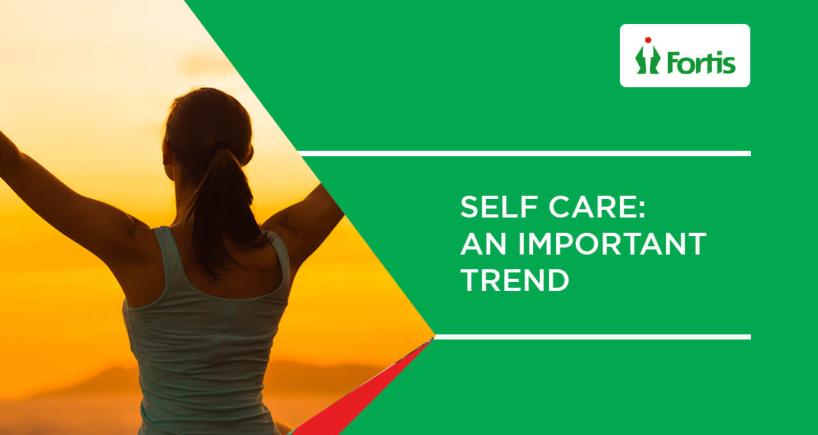
Self Care: An Important Trend
Does your day feel like a blur? Do you struggle to accomplish tasks and focus on work or be attentive in general? Does it feel like a big task to get up from your chair and move to another place? Do you feel exhausted most of the time? Do you place other people’s wellbeing over yours? Recall the past few days and check if you have felt most of the things mentioned above.
Most of the time we don’t realize that being exhausted all the time or a small task seeming like a difficult and huge responsibility is more or less because we are overworked and we don’t give enough time to ourselves to recover and recuperate. It is because we are neglecting the message our mind and body is trying to give us. This is exactly where self-care as a concept comes into the picture. Self care is looking out for ourself, knowing and acknowledging what our mind and body requires. It is the act of engaging in certain activities that help us level up your satisfaction, happiness, contentment and health (both physical as well as mental) quotient.
Engaging in self-care can help us manage health related issues that may arise or what we are already going through. It prepares us to face what lies ahead and deal with situations at hand. Not only this but it also allows us to increase our energy, fight the fatigue and exhaustion that comes with life, lowers the frequency of physical and mental illnesses and leads to overall development.
So while engaging in self-care can be so beneficial, why is it that we don’t give enough attention to it? amongst an array of reasons some of the more prominent ones are as follows:
- Guilt or shame: a lot of us have a preconceived notion that if we prioritize our needs, if we give ourself more importance or are more self-compassionate, it means that we are being selfish. Overlooking your self-care because of this mentality is exactly where we go wrong.
- Vague understanding of self-care: thinking that buying cosmetic products, attending occasional sessions of meditation, “I have the weekends to catch up on sleep” etc are just some examples of what people perceive self-care to be.
- Upbringing: Previous lack of understanding about the need for self-care often translates from generation to generation. There is quite a possibility that these thoughts are engraved in us as we are taught about things.
- Learnt behavior: As social beings when we engage with our peers we often tend to adapt to certain behaviors they are engaging in. “If he/she works so hard and barely takes time off then why do I need time off?” With this thinking we often ignore what our needs are and focus on others and how they function.
Looking out for ourselves is a constant process and should not be an occasional check-in. Knowing ourselves and investing in our needs is one of the most powerful and empowering things we can do for ourselves and the people around us. Having said so, the practice of self-care is not going to automatically become a part of our lives. There needs to be active effort from our part for the same. So let's start off with:
- Checking in with our body more often, listening to its needs, and acknowledging them
- Taking a step back to evaluate how we are feeling.
- Knowing what self-care is and expanding what self-care means specifically to us
- Keeping YOU first because it’s not selfish unless its done at the cost of others
- Knowing what’s helpful for us and what isn’t
As Eleanor Brown (an author) rightly states “Rest and self-care are so important. When you take time to replenish your spirit, it allows you to serve others from the overflow. You cannot serve from an empty vessel.” So let’s not reschedule self-care. Let’s focus on YOU and what YOUR body is telling you.
By: Natasha Bhatia
Counselling Psychologist



















